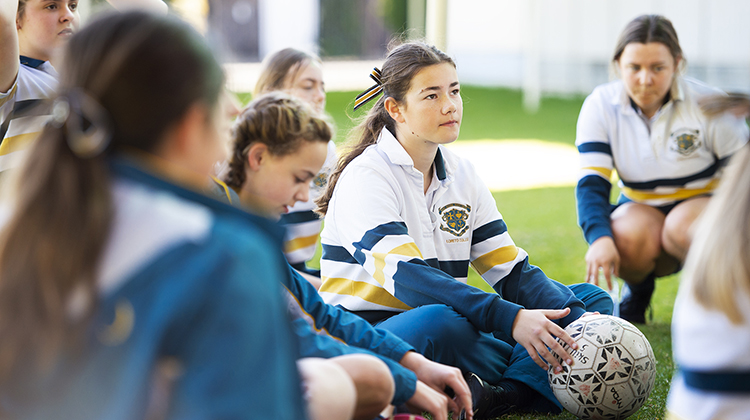Wellbeing in a Time of Exam Stress

Year 12 students are in the throes of the exam period, it’s stressful, high stakes stuff as their performance will only resonate through the rest of their lives.
Keeping up with how students are feeling and looking after their mental health sometimes gets lost in all the action but in the schools that are doing it well, wellbeing is embedded into their school’s everyday fabric.
Loreto College Marryatville’s (South Australia) SEAD program incorporates a daily check-in between students and their mentor teacher emphasising the significance of authentic conversations and meaningful connections.
SEAD lessons are guided by data gathered from E-Pulse, a targeted online questionnaire administered weekly, which offers valuable insights into the health and wellbeing of individual students as well as trends within specific groups or cohorts.
“We strive to normalise discussions around wellbeing, empowering students to confidently seek or accept assistance during challenging times.
“Our school is purposefully designed as a mid-sized institution to ensure that every student is valued, thereby reducing the likelihood of students feeling invisible,” says Mrs Suzie Crowe, Assistant Principal: Wellbeing and Engagement, Loreto College Marryatville.
The Loreto education model is a holistic framework grounded in the values of Freedom, Justice, Sincerity, Verity, and Felicity. It integrates spiritual, cognitive, emotional, and social growth to address the individual needs of students, empowering them to utilise their unique gifts while fostering a sense of service and personal responsibility. These collective skills are essential for personal development and help shift the focus from academic pressure to one of personal fulfillment.
Parents obviously want their child to do well and the school makes a point of involving them in conversations about their children’s wellbeing and how they are contributing to it.
“We recognise that identifying pressures early is key in shaping engaged learners and forming supportive partnerships with families. Access to counseling services, academic guidance, and over 40 extracurricular clubs significantly enhance a student's overall school experience by balancing the breadth and depth of their educational experience. These resources ensure that students receive the guidance they need to navigate both academic and personal challenges effectively.”
Loreto recognises that students thrive when they prioritise choosing the right path over selecting the correct subjects for the “right ATAR”.
“This philosophy is embodied in our motto: ‘Educating strong, passionate, and confident girls and young women.’ In this supportive environment, students are encouraged to embrace freedom of choice, allowing them to flourish by focusing on their personal journeys rather than just the academic options available to them,” she says.
“Wellbeing and academics are intrinsically linked. This means our students achieve success when they are confident in themselves and feel connected to their school community.
Likewise, academic success reinforces personal confidence and motivates further connection. Positive health and academic success contribute to a cycle of improved focus, motivation, and engagement in learning, leading to stronger sense of self and academic achievement.
“We understand that students who develop strong social and emotional skills are better prepared for the complexities of adulthood, including career challenges and personal relationships. Schools that prioritise wellbeing help students build a foundation for lifelong success.”
The school normalises both success and failure, fostering a culture of safe accountability. “Our students must be equipped to embrace life’s ups and downs by rising to challenges, celebrating their successes as well as championing the success of others. Staff support students in viewing mistakes as opportunities for growth rather than obstacles to success.”
Learning opportunities are tailored to enable students to engage and contribute their strengths meaningfully during school, including rising to accept leadership roles. Opportunities for leadership are actively encouraged and prioritised, helping to build student confidence, a sense of agency, peer mentorship and the ability to navigate perspectives in decision-making.
“By building a strong sense of community and peer connectedness, our girls learn to rely on one another, uplift each other, and accept support as a natural part of their school experience.”